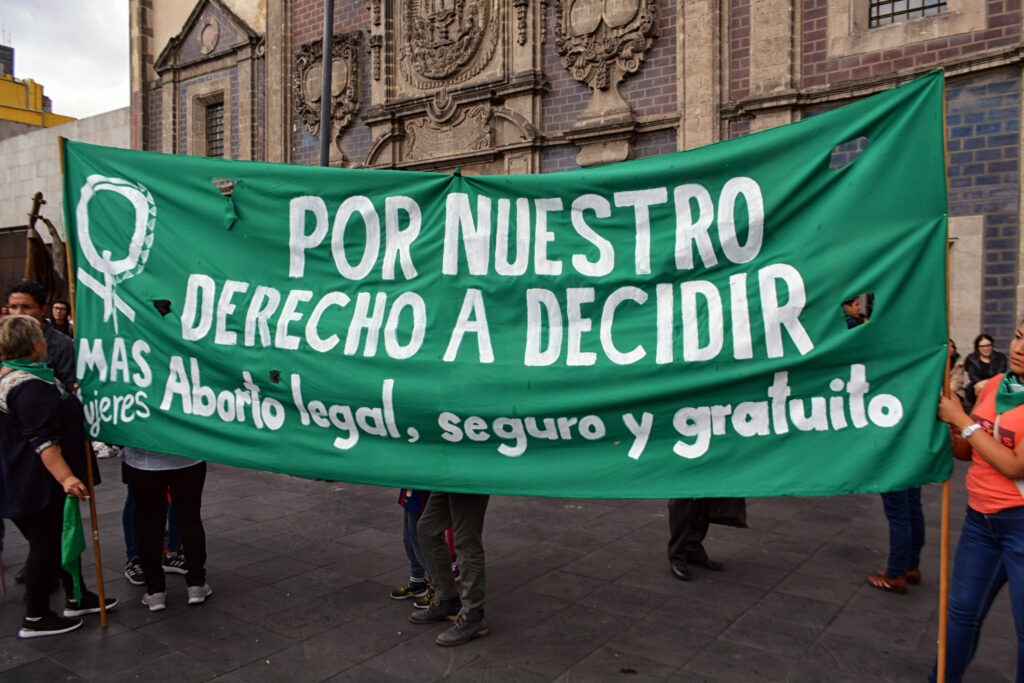In a big step for women’s reproductive rights, women in Colombia can seek elective abortions up to 24 weeks into their pregnancies. This decision, officially confirmed on Feb 21., marks a significant shift in policy, as abortions were previously only permitted in specific circumstances.
Even though the Colombia ruling marks another of a number of legislative changes around abortion, general mentality in South America has yet to follow this progressive trend. Even as some countries have witnessed a shift in policy wile combatting conservative mentalities, others are firm on their not condoning elective abortions by law or social attitude.
Colombia
Previously, abortions were only legal under limited circumstances: when a woman’s life was at risk, the fetus was nonviable or the pregnancy was a result of rape or incest. However, even in these cases, the processes were drawn-out and difficult.
As part of the extensive approval process, one woman was required to present herself before a panel consisting of a gynecologist, a hematologist and a psychiatrist. In many cases, women encountered medical pushback preventing their requests from moving forward.
Now, the new ruling allows elective abortions up to 24 weeks, or about six months, into the pregnancy.
Although this decision comes amid lingering taboos and stigmas preventinh adequate abortion access and education in the country, the ruling should still increase accessibility. It could also indicate a change in mentality, which now seems to be the biggest obstacle in Colombia for abortion seekers.
Argentina
Similar to Colombia, Argentina is among the few countries in South America that allow elective abortions. Before a recent ruling in Dec. 2021, women were only able to seek abortions in the case of rape or if the pregnancy caused risk to the mother’s health. Otherwise, women could be charged even if they miscarried. In one extreme case, a woman was sentenced to eight years in prison after a miscarriage. She is now fighting to have her sentence revoked after the recent ruling.
Even though the law passed in December renders the process legal, many Argentinian doctors conscientiously object to the procedure, making it more difficult for women to find locations that will carry it out. Many pro-life activists are also filing lawsuits claiming the law is unconstitutional.
In some cases, the Catholic church still has significant influence in rural areas, and doctors will attempt to scare patients off of abortions by convincing them their fetus will turn into an elf or the abortion will cause cancer. Thus even if the law provides access to abortions, the social climate works to inhibit it.
Uruguay
Compared to other South American countries, Uruguay has fairly progressive laws, as it has no official religion and the country’s religious institutions have significantly less political influence. Even so, it took many decades of debate to reach a ruling on abortion, which came in 2012.
According to Women’s Media Center, Uruguay passed a law that legalized elective abortions within the first 12 weeks of pregnancy. There are still a fair share of limitations, such as extensive processes to go through and doctors who conscientiously object; in some areas of Uruguay, 100 percent of doctors claim conscientious objection.
However, in the four years following the ruling 40,000 safe abortions were performed. As a result of this law, the rate of maternal mortality dropped, indicating that despite obstacles of political attitudes toward it, the change in policy did have a significant impact on women’s reproductive health.
Ecuador
Ecuador also passed a recent ruling on abortion. In comparison to Colombia, however, Ecuador’s simply allowed abortions in the case of rape for up to 12 weeks.
Ecuador is traditionally a conservative country, and there has therefore been much debate on the issue. These regulations themselves still have yet to be officially passed, as Ecuador’s conservative President Guillermo Lasso can still block them before they become a law. Even with this power, Lasso has said that despite his personal reservations against the procedure, he will let lawmakers ultimately “regulate” it.
Abortion rights activists also argue that the time limit is too restrictive and will still result in unsafe abortions. Abortions in cases where the woman’s life is at risk were already legal, but elective abortions are still prohibited. Another obstacle is that much of the country still disapproves of the procedure, because of its largely Catholic and conservative population, so doctors who conscientiously object are commonplace.
Paraguay
Paraguay has one of the strictest abortion policies in South America and has stirred much debate in the past. In Paraguay, abortion is only legal when the woman’s life is in danger. Otherwise, women are by law forced to continue pregnancy — even in cases of rape or incest, nonviable fetuses and serious but nonfatal health risks to the mother.
According to Human Rights Watch, health ministry data shows an average two girls a day, ages 10 to 14, give birth in Paraguay — even though sexual relations with anyone under 14 is rape under Paraguayan law. Girls at this age face higher risks of health complications but are still forced to carry out their rape-induced pregnancies.
Venezuela
Venezuela has had problems with abortion issues in the past and upholds some of the region’s strictest policies as well. In 2021 a doctor was arrested for helping a 13-year-old end a pregnancy after a rape. As in Colombia, activists argue that this criminalization of the procedure contributes to much dissent and stigma around the issue.
Echoing Paraguay’s stance, Venezuela currently only allows abortions to save the mother’s life. With a lack of availability of contraceptives and a struggling economy, many women turn to illegal abortions to avoid having a child they cannot properly support. They face six months to two years in prison for such an action.
Across the board, countries in South America have varying degrees of severity in their laws and mindsets towards abortion. While some only allow abortions in the most extreme cases and others have policies that allow for elective abortions, from a women’s rights perspective, there are still advancements to be made in order to make abortion more accessible to those who seek it.
The Colombia ruling represents one of such advancements. From that angle, it can be seen as a victory for pro-choice activists in the country. However, much progress still stands to be made before abortion is openly accessible to women across South America.







